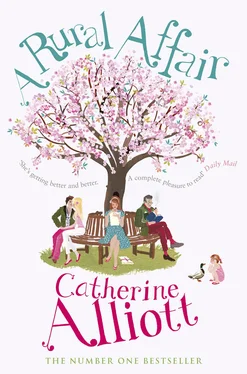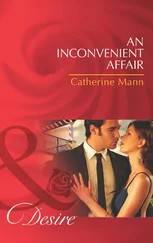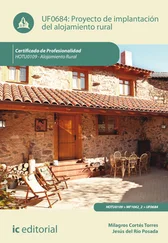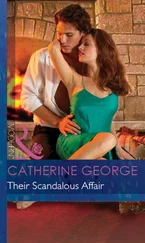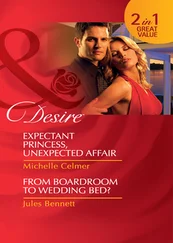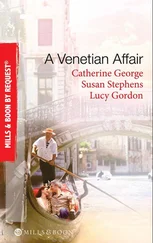Catherine Alliott - A Rural Affair
Здесь есть возможность читать онлайн «Catherine Alliott - A Rural Affair» весь текст электронной книги совершенно бесплатно (целиком полную версию без сокращений). В некоторых случаях можно слушать аудио, скачать через торрент в формате fb2 и присутствует краткое содержание. Жанр: Старинная литература, на английском языке. Описание произведения, (предисловие) а так же отзывы посетителей доступны на портале библиотеки ЛибКат.
- Название:A Rural Affair
- Автор:
- Жанр:
- Год:неизвестен
- ISBN:нет данных
- Рейтинг книги:5 / 5. Голосов: 1
-
Избранное:Добавить в избранное
- Отзывы:
-
Ваша оценка:
- 100
- 1
- 2
- 3
- 4
- 5
A Rural Affair: краткое содержание, описание и аннотация
Предлагаем к чтению аннотацию, описание, краткое содержание или предисловие (зависит от того, что написал сам автор книги «A Rural Affair»). Если вы не нашли необходимую информацию о книге — напишите в комментариях, мы постараемся отыскать её.
A Rural Affair — читать онлайн бесплатно полную книгу (весь текст) целиком
Ниже представлен текст книги, разбитый по страницам. Система сохранения места последней прочитанной страницы, позволяет с удобством читать онлайн бесплатно книгу «A Rural Affair», без необходимости каждый раз заново искать на чём Вы остановились. Поставьте закладку, и сможете в любой момент перейти на страницу, на которой закончили чтение.
Интервал:
Закладка:
‘Which is fine, because we’ve got plenty of time. The wedding’s not for a few weeks,’ said Jennie.
‘Wedding?’ I was surprised to hear my voice.
‘Well, that’s the whole point, that’s what we’re practising for.’
‘Oh.’
‘Every Monday,’ Angie told me firmly. ‘And don’t forget, you’re all coming to my house tomorrow.’
‘Are we?’ I felt panicky. ‘Why?’
‘Because we’re starting the book club. We told you that a week or so ago, remember?’
Oh, yes, vaguely. But it had been that terrible day. The one when everything had changed. All the clocks stopped. Black Friday. When, suddenly, I hadn’t been a widow who was finding hidden reserves and coping really rather marvellously, much to the relief of my friends, but in the blink of an eye, in twenty-five minutes to be precise, had become someone different.
‘And I said I’d …?’ I felt my way cautiously.
‘Come,’ Angie told me firmly. ‘Definitely come. And pitch in. Everyone’s bringing a few nibbles.’
‘Well, no, we might do that, actually,’ Jennie said quickly as they exchanged a glance. Nibbles from me might be a bridge too far.
‘When you say everyone …’
‘Just the four of us,’ Angie told me kindly. ‘Us three and Peggy to begin with. The idea is that this week we’ll just meet to discuss and decide who to ask along, what sort of books we’ll read, that type of thing.’
‘Oh.’
‘Manage that?’ asked Jennie gently, as we got to my gate.
I nodded dumbly. Stared at my shoes. Felt my body go rigid as they both embraced me. They bid me goodnight.
I realized, as I went inside, that my two friends were still loitering outside, conferring a moment and talking in hushed whispers behind my hedge. I leaned back on the inside of my front door and counted to ten. Then I peeled myself off and, with an effort, propelled myself towards the sitting room.
Frankie was on her hands and knees at my coffee table, already gathering her schoolbooks from it, stuffing them furtively in her bag. For all her big talk, Frankie harboured subversive tendencies: she was a secret worker who did well at school. I gave her a moment, lingering in the hall, taking off my coat and putting my bag on the table. I was fond of Frankie and knew there were some guilty secrets she wouldn’t want Jennie to know.
‘Thanks, Frankie,’ I said, going in and handing her some money as she stood up, swinging her book bag over her shoulder. ‘Everything OK?’
‘Yeah, fine. We played for a bit then they did their teeth and went straight to sleep. How was your big night out?’
‘Oh, huge.’
‘Good. You look a bit, you know –’ she peered at me – ‘better, actually.’
I nodded, unable to speak. Angie and Jennie concerned about me I could handle. Frankie, with her multitude of teenage problems, would reduce me to tears.
When she’d gone, I went upstairs and looked in on my sleeping babes, pushing each of their bedroom doors ajar. Clemmie was on her side, elaborate furrows of tiny plaits decorating her head and culminating in something complicated at the back. Her fist was clenched tightly around her rabbit’s ears. Archie, in the next room, was flat on his back, arms flung out like a starfish, mouth open, his wispy hair gathered in a top-knot tied in a pink ribbon on his head, like a Flintstone baby. His intense vulnerability almost made me cry out. My hand went to my throat. I stood for a moment, watching him breathe in and out, noticing the way the moon shone through a gap in his curtains, casting a silver sliver on the opposite wall. Then I turned and went back downstairs to the kitchen. Back to my chair.
On the pinboard on the wall opposite was a photo of Clemmie and her best friend, Alice. It had been taken at the beginning of term in their ballet class, a few days before Phil died. In the days immediately following his death I’d looked at the photo a lot. Two little girls, same ballet shoes, same little pink skirts, same advantages – except now my daughter was changed for ever. And she didn’t yet know it. Half of her unconditional love had gone, half of her quota to get her through life. I was terrified at how reduced she was. She wasn’t the same child in the photograph and whenever I looked at it, it made me panicky with fear. But then somehow, gradually, as the days, and then the weeks had crept by, I’d managed to control the panic. I’d force myself to think positively, think of people who’d survived this lack of parenting, myself included. Peggy, whose father had died young. I’d even begun to feel that in some small way I was winning: that we’d be all right, Clemmie, Archie and me. What I hadn’t accounted for was my own sudden reduction. The shrinking of my own soul as I’d opened that door, looked into a past I didn’t know I had, and realized I wasn’t a proper person at all.
6
She was called Emma. Emma Harding. I remembered her coming up the road through the village. Remembered her little black Mini. A Mini Cooper. A cool car. One that in a vague, unformed sort of way, not that I was particularly into cars, but if I was, I’d quite like, if you know what I mean. And I’d seen it clearly, because I’d been dusting the windowsill at the time, lifting a lamp. It stopped outside my house. Out got Emma, pretty, petite, blonde, her shoulder-length hair swinging as she turned to shut the car door behind her. A white smocky top, jeans, beaded mules. Oh, and a flimsy sparkly scarf round her neck, pale blue and silver: nice. Sort of Monsoony. I watched as she came up the path, surprised it was my house she was approaching. She saw me through the window: stopped and waved uncertainly. I went to the door. I remembered her smile. Shy. Nervous. She was ever so sorry to call unannounced, she said, hands fiddling with the strap of her shoulder bag; she knew this was a terrible time for me.
I frowned. ‘Sorry, do I … ?’
‘My name’s Emma Harding. I was a friend of Phil’s. A good friend.’
I didn’t think anything of it. She followed me through to the sitting room, and as I turned her eyes finally met mine, so nervous, like a scared rabbit. And I motioned her to sit on the goose-poo sofa and then sat down opposite her, duster still in hand. And in that instant, I knew where I’d seen her before. At the funeral. She’d been crying a lot. Head bowed, hanky to mouth, in a black wool suit, quite elegant. And someone had an arm protectively around her shoulders, one of Phil’s cycling friends. His wife, perhaps, I’d thought. Perhaps not. And I’d been rather ashamed because I wasn’t crying. Not like that.
She started to speak, in a low, unsteady voice, hands twisting. She and Phil had met at work. They’d tried not to … you know. Had resisted each other for ages in fact, denied the attraction, but at a conference in Manchester … well, it all got out of control, seeing as how they were away from home. And then over the last four years … well, they’d completely fallen in love. And of course there was their cycling, which they did at weekends. Nearly every weekend. And she, Emma, knew it was so wrong, but she wasn’t married, you see, wasn’t betraying anyone. And Phil was so lonely. So sad.
Emma looked anxiously at me. White-faced. Scared. Fingers in her sparkly scarf in perpetual motion.
‘Why are you telling me this?’ I managed. Found my voice which was hidden deep in my ribcage. Cowering there.
‘Because I know Phil provided for me. I know, in his will, he made a provision, because we’d been together so long, and I want you to know,’ her voice began to tremble, ‘I want you to know I don’t want any of it.’
I stared straight ahead into the school playground where I was standing right now with Archie in his pushchair, waiting for Clemmie. My eyes felt dry and gritty with lack of sleep. I remembered her eyes, though: full of grief. Full of proper mourning. And I’d been humming as I’d dusted the window ledge that morning. Just a little bit, but still.
Читать дальшеИнтервал:
Закладка:
Похожие книги на «A Rural Affair»
Представляем Вашему вниманию похожие книги на «A Rural Affair» списком для выбора. Мы отобрали схожую по названию и смыслу литературу в надежде предоставить читателям больше вариантов отыскать новые, интересные, ещё непрочитанные произведения.
Обсуждение, отзывы о книге «A Rural Affair» и просто собственные мнения читателей. Оставьте ваши комментарии, напишите, что Вы думаете о произведении, его смысле или главных героях. Укажите что конкретно понравилось, а что нет, и почему Вы так считаете.
